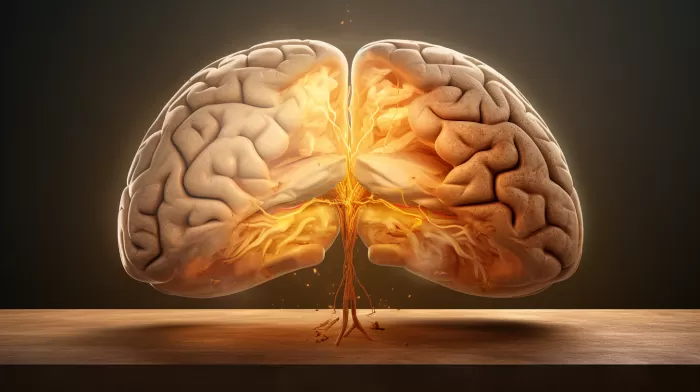A lack of vitamin D in your diet can have detrimental effects on your brain, leading to significant damage. While we all know the importance of vitamin D for maintaining bone health, many people may not be aware that it also has a significant role in the function of other organs and tissues in the body, such as the brain.
Researchers from the University of Kentucky conducted a study on middle-aged rats by feeding them a diet lacking in vitamin D for several months. The results showed that these rats developed free radical damage to their brains. In addition, various brain proteins were damaged, further emphasizing the importance of vitamin D in maintaining healthy brain function. To make matters worse, these rats also experienced a noticeable decline in cognitive performance in learning and memory tests.
As vitamin D deficiency is widespread, particularly among the elderly population, it’s essential to take preventative measures in order to maintain healthy brain function. But what exactly does this mean, and how can you prevent free radical damage and cognitive decline?
The Importance of Vitamin D in Brain Health
Free radicals are harmful molecules that can cause damage to the cells in your body, resulting in a variety of health issues. When it comes to the brain, free radical damage can have severe consequences, including cognitive decline. The presence of adequate vitamin D levels in the body helps prevent free radical damage in the brain, protecting against cognitive decline. In short, ensuring you have sufficient vitamin D in your diet is vital for maintaining proper brain health.
How to Increase Your Vitamin D Intake
The good news is that there are several ways you can increase your vitamin D intake to ensure your body and brain remain healthy:
- Sunshine: The easiest and most natural way to receive vitamin D is from direct sunlight. The human body can produce vitamin D when exposed to sunlight, with 10-30 minutes of sun exposure per day generally being enough to maintain healthy levels.
-
Diet: Incorporating foods high in vitamin D into your daily diet can also help supplement your vitamin D intake. Some examples of vitamin D-rich foods include fatty fish (such as salmon, tuna, and mackerel), cheese, egg yolks, and fortified milk, yogurt, and orange juice.
-
Supplements: If maintaining a diet high in vitamin D-rich foods or getting enough sunlight is a challenge, you can consider taking a vitamin D supplement. Speak to your doctor before starting any supplements to ensure they are right for you and to discuss the correct dosage.
Risks of Vitamin D Deficiency
A deficiency in vitamin D can lead to a variety of health issues. In addition to the previously mentioned cognitive decline, vitamin D deficiency can also result in:
- Weakened bones: As vitamin D is essential for calcium absorption, a deficiency can lead to weakened bones and increased risk of fractures or osteoporosis.
- Weakened immune system: Low vitamin D levels can negatively impact your immune system, making you more susceptible to illnesses and infections.
- Increased risk of depression: Studies have suggested that low vitamin D levels may be associated with an increased risk of depression.
- Increased risk of certain cancers: Some research has shown an association between low vitamin D levels and an increased risk of certain types of cancer, such as breast, prostate, and colon cancer.
No matter your age, it’s crucial to maintain proper vitamin D levels to prevent the health issues mentioned above. For the elderly population, ensuring they receive an adequate amount of vitamin D can be even more important due to the numerous health benefits, including protecting against cognitive decline and maintaining brain health.
In conclusion, it’s clear that maintaining adequate vitamin D levels is crucial for maintaining both overall health and brain function. Ensuring that you have a healthy and balanced diet, incorporating vitamin D-rich foods, getting sufficient sunlight, and, if necessary, taking supplements, can help you protect your brain from free radical damage and other harmful consequences associated with vitamin D deficiency. Don’t underestimate the importance of this essential nutrient – your brain will thank you!



